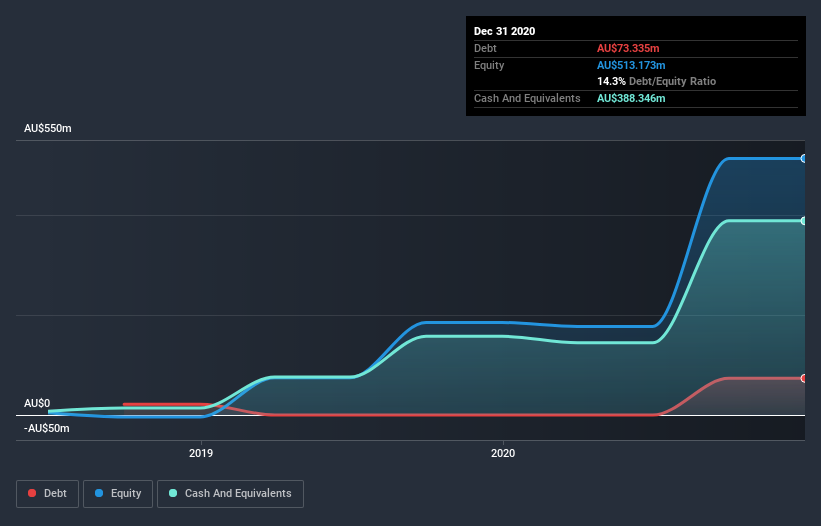PointsBet Holdings (ASX:PBH) Is Using Debt Safely
David Iben put it well when he said, 'Volatility is not a risk we care about. What we care about is avoiding the permanent loss of capital.' So it might be obvious that you need to consider debt, when you think about how risky any given stock is, because too much debt can sink a company. As with many other companies PointsBet Holdings Limited (ASX:PBH) makes use of debt. But the real question is whether this debt is making the company risky.
When Is Debt Dangerous?
Debt and other liabilities become risky for a business when it cannot easily fulfill those obligations, either with free cash flow or by raising capital at an attractive price. If things get really bad, the lenders can take control of the business. However, a more common (but still painful) scenario is that it has to raise new equity capital at a low price, thus permanently diluting shareholders. By replacing dilution, though, debt can be an extremely good tool for businesses that need capital to invest in growth at high rates of return. When we examine debt levels, we first consider both cash and debt levels, together.
See our latest analysis for PointsBet Holdings
What Is PointsBet Holdings's Net Debt?
You can click the graphic below for the historical numbers, but it shows that as of December 2020 PointsBet Holdings had AU$73.3m of debt, an increase on none, over one year. However, it does have AU$388.3m in cash offsetting this, leading to net cash of AU$315.0m.
How Healthy Is PointsBet Holdings' Balance Sheet?
The latest balance sheet data shows that PointsBet Holdings had liabilities of AU$66.8m due within a year, and liabilities of AU$81.6m falling due after that. Offsetting these obligations, it had cash of AU$388.3m as well as receivables valued at AU$306.3k due within 12 months. So it can boast AU$240.2m more liquid assets than total liabilities.
This short term liquidity is a sign that PointsBet Holdings could probably pay off its debt with ease, as its balance sheet is far from stretched. Succinctly put, PointsBet Holdings boasts net cash, so it's fair to say it does not have a heavy debt load! The balance sheet is clearly the area to focus on when you are analysing debt. But it is future earnings, more than anything, that will determine PointsBet Holdings's ability to maintain a healthy balance sheet going forward. So if you're focused on the future you can check out this free report showing analyst profit forecasts.
Over 12 months, PointsBet Holdings reported revenue of AU$123m, which is a gain of 199%, although it did not report any earnings before interest and tax. So its pretty obvious shareholders are hoping for more growth!
So How Risky Is PointsBet Holdings?
Statistically speaking companies that lose money are riskier than those that make money. And the fact is that over the last twelve months PointsBet Holdings lost money at the earnings before interest and tax (EBIT) line. Indeed, in that time it burnt through AU$88m of cash and made a loss of AU$95m. But the saving grace is the AU$315.0m on the balance sheet. That means it could keep spending at its current rate for more than two years. Importantly, PointsBet Holdings's revenue growth is hot to trot. While unprofitable companies can be risky, they can also grow hard and fast in those pre-profit years. The balance sheet is clearly the area to focus on when you are analysing debt. But ultimately, every company can contain risks that exist outside of the balance sheet. We've identified 3 warning signs with PointsBet Holdings , and understanding them should be part of your investment process.
At the end of the day, it's often better to focus on companies that are free from net debt. You can access our special list of such companies (all with a track record of profit growth). It's free.
This article by Simply Wall St is general in nature. It does not constitute a recommendation to buy or sell any stock, and does not take account of your objectives, or your financial situation. We aim to bring you long-term focused analysis driven by fundamental data. Note that our analysis may not factor in the latest price-sensitive company announcements or qualitative material. Simply Wall St has no position in any stocks mentioned.
Have feedback on this article? Concerned about the content? Get in touch with us directly. Alternatively, email editorial-team (at) simplywallst.com.

